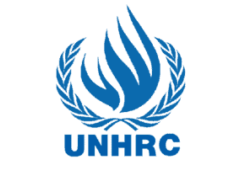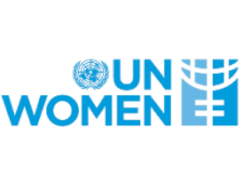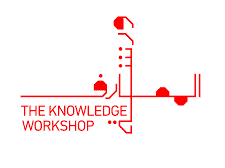UPDATES TO KAFALA
The definitive place to get the latest updates on Kafala.
Alidhani amepata ajira ya ndoto yake , lakini aliishia kuwa mhanga wa kufanyishwa kazi bila malipo.
Tigets last saw her son when he was 2 years old, before she left Ethiopia to find work in Lebanon that would allow her to support him.
29 September 2021
The Committee on Economic, Social and Cultural Rights today completed its review of the third periodic report of Kuwait on measures taken to implement the International Covenant on Economic, Social and Cultural Rights, inquiring about the situation of domestic workers and the rights of women, among other issues.
Investigasi terhadap kepemilikan asing atas klub sepak bola Australia mengungkap kaitan dengan seorang eksekutif Indonesia, yang dipenjara karena skandal pengaturan pertandingan besar dan tuduhan sport washing oleh salah satu negara Arab terkaya.
Artikel ini telah tayang di Kompas.com dengan judul "Kepemilikan Asing Brisbane Roar Bermasalah, Nama Joko Driyono dan Bakrie Dicatut", Klik untuk baca: https://www.kompas.com/global/read/2021/09/27/214335970/kepemilikan-asing-brisbane-roar-bermasalah-nama-joko-driyono-dan-bakrie?page=all.
Penulis : Bernadette Aderi Puspaningrum
Editor : Bernadette Aderi Puspaningrum
Download aplikasi Kompas.com untuk akses berita lebih mudah dan cepat:
Android: https://bit.ly/3g85pkA
iOS: https://apple.co/3hXWJ0L
The story of migrant labor has two polar opposite faces in Bangladesh—one is the "success story" of hard-earned foreign exchange being sent back to the country by our dedicated migrant workers, keeping their families afloat and propping up the economy as well. The other side of that story is one of vulnerability, exploitation and the dehumanising of migrant workers, turning them into products for sale in a market where the cheaper the cost of labor, the higher the margin of profit.
hilippines President Rodrigo Duterte has renewed his call for the abolition of the kafala or sponsorship system in Gulf countries, saying it was “unjust” and permits the “exploitation” of millions of overseas Filipino workers (OFWs).
My parents, both full time workers, it was difficult for them to raise 2 children on their own. Thus, in 2005 (I was 2 years old my brother was a couple of months old), Didi (the nanny) became part of our family. She was a filipino in her early twenties who came here to support her family financially.
Gender equality cannot be achieved in Lebanon without dismantling the kafala system and creating legal protections for domestic workers.
Son mujeres valientes porque, a pesar de vivir en una sociedad dominada por las leyes de un sistema islámico patriarcal que las maltrata, las viola, las vende, las esclaviza o las mata, saben cómo organizarse para luchar por su libertad. Un machismo violento y mortal en pleno siglo XXI que combaten con conocimiento, armas, arte y redes de apoyo clandestinas.
It is not an easy task to write about the history of organizing by migrant
domestic workers in Lebanon during the nineties.1 The “archive” of this
struggle, an important source for historical writing that could illuminate
radical moments from the past to support intersectional struggles in the
present, is elusive and incomplete.2 Even if archival documents were within
reach, however, they could only lay claim to history fragmentarily, long after
heroines had disappeared—and they haven’t seized to be present.3 The first is
Malini (Mala) Kandaarachchige who arrived in Lebanon from Sri Lanka during
the civil war, labored in domestic work, and organized the Sri Lankan
community surrounding Dahr el-Souane around mutual aid praxis in the
nineties. Difficult material conditions forced educator and longtime community mobilizer Gemma Justo out of her home in the Philippines and into postwar Lebanon where she spent more than two decades initiating repatriation
processes, advocating on behalf of migrant domestic workers, and contributing to transform the local feminist movement. Then at the close of the nineties, missionary Aimée Razanajay gave up a more privileged life in Madagascar and came to Lebanon as a domestic worker. Dedicating her resources, she organized through the church to repatriate Malagasy domestic workers enduring exploitation and abuse. However diverse their strategies may have been, these women were notable makers of that decade’s organizing history.











